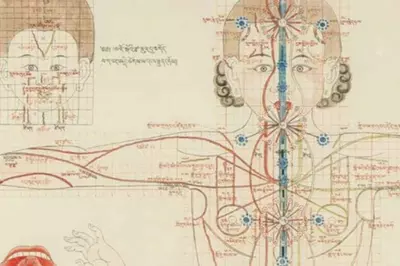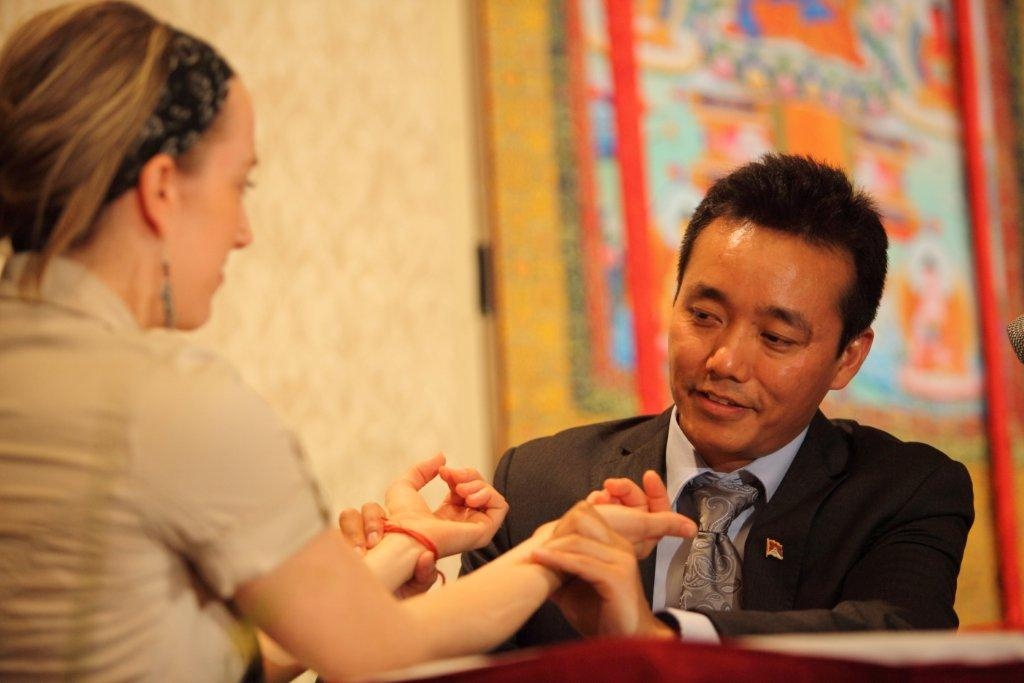Tibetan Medicine

Your first Tibetan medicine visit
A qualified, experienced practitioner of Tibetan medicine will use three methods to assess your individual constitutional energy pattern and degree of imbalance.
- Questioning – Such as asking about your lifestyle, thinking, environment, food, and behavior.
- Observation – Looking at your skin, tongue, and urine sample.
- Touch – Feeling the radial artery pulse on both your wrists, inspecting any abnormal growths or painful areas/points of tenderness on your body, and checking your skin temperature.
To get the most out of your consultation, tell the practitioner about your health concerns and ask the following four questions:
- What is my inborn constitutional nature?
- What, if any, energies are out of balance?
- How can I bring my energies back into balance?
- How can I live in harmony with my constitution?
What about Tibetan medicines?
Practitioners of Tibetan medicine may prescribe Tibetan medicines, in addition to dietary and lifestyle recommendations. Tibetan medicines are composites of various plants and occasionally minerals. Some Tibetan medicines have over 100 components. In each Tibetan medicine, some ingredients treat the underlying imbalance and others treat any side effects that may occur.
Before taking a Tibetan medicine, tell the practitioner if you are on any other medications. Ask where the Tibetan medicine came from, what the purpose is, if there are any side effects, and when you should take it. Make sure that the medicine came from a qualified pharmacy. Also, let your regular healthcare provider know that you consulted with a Tibetan medicine practitioner and are taking a Tibetan medicine.
Legal and ethical issues
Because Tibetan medicine is new in the United States, few qualified, experienced Tibetans practice Tibetan medicine in the U.S. Currently, no official accreditation or standardization procedure has been established for Tibetan medicine practitioners in the United States. Tibetan medicine practitioners must follow state laws for the practice of complementary and integrative therapies because they are not licensed as physicians in the U.S. They cannot call themselves a doctor and are not allowed to use treatments that are covered by other licensing boards, such as puncturing the skin (acupuncture) and manipulating joints (chiropractic).
For example, Minnesota Statute Chapter 146A, “Complementary and Alternative Health Care Practices” governs practitioners of Tibetan medicine and other unlicensed practitioners of complementary and alternative health care. The “Client Bill of Rights,” an important part of this Statute, helps practitioners and clients to share information about rights and responsibilities.
Tibetan medicine is becoming increasingly popular in the U.S. Some people who lack sufficient education and supervision claim to be practitioners of Tibetan medicine. Before having a consultation with a Tibetan medicine practitioner, ask questions to make sure that the person is qualified for what you need.
Article Updated: May, 2020



